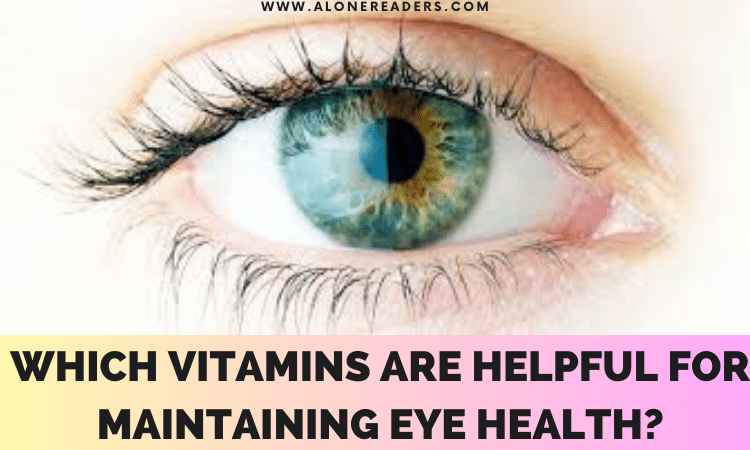
For the maintenance of healthy eye health, vitamins A, C, and E are necessary. The eyes can benefit from additional nutrients, including B vitamins.
Specific vitamin deficiencies can raise the chance of developing certain eye diseases such as cataracts, glaucoma, and age-related macular degeneration. According to research, several vitamin and mineral supplements may be able to prevent or delay the development of various illnesses.
Below are the vitamins and minerals essential for good eye health and how people can add them to their diet:
Vitamin A and Beta Carotene
For clear vision, vitamin A is necessary. It is a part of the protein rhodopsin, which the eye uses to see in dim light. The American Academy of Ophthalmology states that night blindness can result from a vitamin A deficit.
The cornea, the eye's outermost layer of protection, is supported in its function by vitamin A. A person with a vitamin A deficiency can discover that their eyes don't produce enough moisture to stay moisturized.
In the human diet, beta-carotene is the main source of vitamin A. Many colored fruits and vegetables contain beta-carotene, a carotenoid type of plant pigment.
The body converts the colors in carotenoids into vitamin A when they are consumed.
Vitamin A-rich Foods
By consuming the following foods, people can increase their vitamin A intake:
Vitamin B
People with likely to have lower blood B12 levels, according to a 2015 analysis.
However, all of the study's participants were female. Therefore, more research is needed to support the use of B vitamins in both men's and women's AMD prevention.
A 2018 South Korean national study found a connection between glaucoma and a decline in vitamin B3 (niacin) intake. Patients with glaucoma experience pressure on the optic nerve due to an accumulation of fluid inside the eye. Over time, this might damage the nerve and impair vision.
A small 2020 study discovered that mecobalamin and vitamin B1 supplements could reduce the signs and symptoms of dry eye illness.
Vitamin B-rich Foods
The following foods have high concentrations of different B vitamins:
Vitamin C
Vitamin C is essential for protecting the eye from UV deterioration. Age causes a decrease in the amount of vitamin C in the eyes, although diet and supplementation can help make up for this.
Vitamin C also helps to guard against oxidative damage. The two most common age-related cataracts, nuclear and cortical, both have oxidative damage as a significant contributing factor. Nuclear cataracts happen deep inside the center of the lens, while cortical cataracts form on its margins.
Vitamin C-rich Foods
High in vitamin C are the following foods:
Vitamin E
An especially potent antioxidant, alpha-tocopherol is a kind of vitamin E.
Free radicals harm body tissues throughout, and antioxidants aid in fighting them. Free radicals can occasionally harm the eye's protein structure. Cataracts, which are clouded regions of the lens of the eye, may form as a result of this injury.
High vitamin E consumption, whether from food or supplements, may lower the chance of getting cataracts.
Vitamin E-rich Foods
Foods rich in vitamin E include:
The following nutrients may also be advantageous for the eyes, according to research:
Lutein and Zeaxanthin
Green leafy vegetables contain large amounts of the carotenoid’s lutein and zeaxanthin. Additionally, they can be found in the retina and lens of the eye.
Lutein and Zeaxanthin-rich Foods:
Zinc
The retina, cell membranes, and protein structure of the eye all benefit from the mineral zinc.
Zinc enables the transport of vitamin A from the liver to the retina, where it is used to make melanin. The melanin pigment protects the eyes from UV radiation.
Sources of Zinc
Omega-3 Fatty Acids
Omega-3 fatty acids are highly concentrated in the retina of the eye. These fatty acids aid in defending the retina from deterioration and injury. Omega-3 supplements have been shown to decrease the deterioration of the retina caused by aging in small animals. However, further research on humans is required to properly understand the connection.
Omega-3 Fatty Acid-rich Foods
Vitamins and the Diet
A nutritious, well-balanced diet can support eye health and safeguard a person's vision. A diversified diet full of foods that are nutrient-dense can frequently offer enough levels of each vitamin and mineral. If a person's diet is unable to meet their nutritional needs, they may need to take additional supplements.
Before making significant dietary changes, it is crucial for people to check with a doctor because taking supplements occasionally can have negative side effects. For instance, large zinc dosages may interfere with the body's ability to absorb copper.
Final Word
For maintaining the best eye health, several vitamins and nutrients are crucial. Some might even assist in stopping the development or progression of specific eye conditions.
People will receive the necessary variety of nutrients from a healthy, balanced diet. Whole grains, legumes, and lots of colorful fruits and vegetables should all be part of the diet.